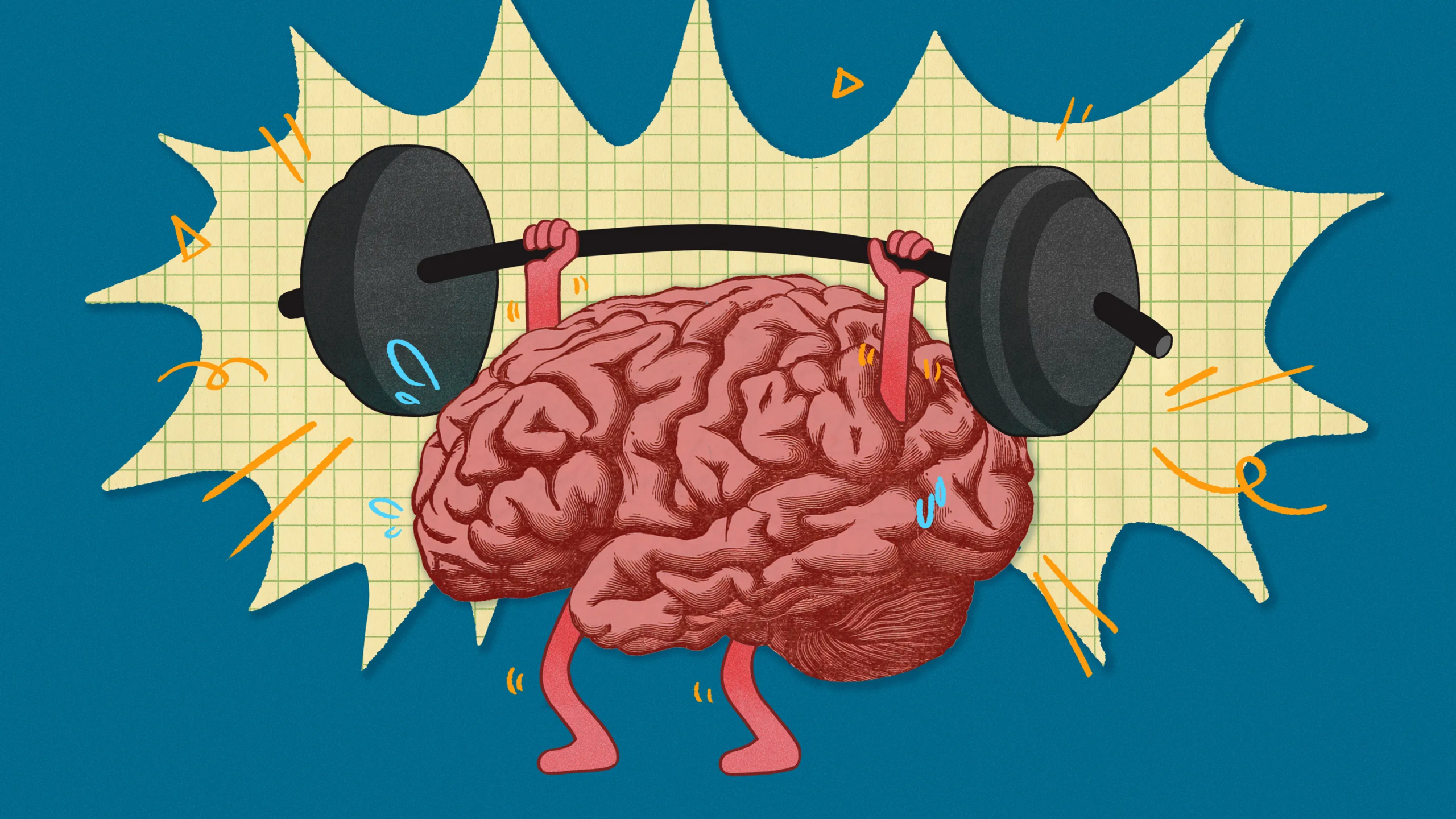The Brain on Overload: Understanding the Intricacies of Intense Thinking
We’ve all experienced it—the familiar feeling of tense concentration where your brow knits together, a mental haze starts to envelop you, and perhaps even a mild headache sets in. You find yourself grappling with a challenging problem, striving to grasp a new concept, or deliberating a significant decision. This pursuit of insight can feel akin to running a marathon, taxing your mind in ways that are both profound and intricate.
But what exactly transpires within your brain during such demanding cognitive endeavors? Engaging in deep thought is not a mere abstract sensation; it represents a remarkable physiological phenomenon. Your brain shifts into high gear, consuming substantial amounts of energy as it engages in a complex ballet of neural activity and biochemical processes.
In this article, we will delve deep into the inner workings of your brain during intense cognitive exertion. Get ready to discover the fascinating physiological events that unfold when your mind approaches its cognitive limits and explore the hidden mechanisms that operate under pressure.
The Neural Symphony: Neurons Firing on All Cylinders
The Spark: Neuronal Communication and Synaptic Activity
Your brain comprises billions of tiny cells known as neurons. These neurons communicate with one another through minuscule gaps called synapses. When you engage in deep, concentrated thinking, this intricate dialogue among neurons intensifies dramatically. It’s akin to cranking up the volume on a grand orchestra, with each neuron playing its part in a complicated symphony of thought.
The communication is facilitated by special chemicals known as neurotransmitters. Prominent among these are glutamate and acetylcholine, which traverse the synaptic gaps with astounding speed to relay messages between neurons. With repetitive engagement in challenging thought processes, these neuronal connections can actually strengthen through a phenomenon known as synaptic plasticity. This enables your brain to become increasingly adept at navigating complex cognitive tasks, thereby enhancing its capacity for problem-solving and learning.
Fueling the Fire: Glucose and Oxygen Consumption
Engaging in deep thought is far from a passive endeavor for the brain; it demands a substantial amount of mental energy. Primarily, your brain relies on glucose, a simple sugar, as its primary source of energy. Additionally, oxygen is crucial for sustaining this high level of energy. When you focus intensely, your brain allocates these vital resources strategically, directing them toward the areas most engaged in cognitive work.
During moments of focused thinking, regions of the brain that are actively tackling complex problems experience heightened blood flow, ensuring an increased supply of glucose and oxygen. This process illustrates just how much energy your brain expends during periods of acute concentration. Simultaneously, areas responsible for unrelated tasks—such as the default mode network, which manages daydreaming and mind-wandering—are subdued, allowing your mental faculties to hone in with greater precision on the task at hand.
The Powerhouse: The Role of Specific Brain Regions
As you dive deeper into a challenging problem, certain specific regions of your brain light up, collaborating in a concerted effort to facilitate your cognitive functions. Each of these areas plays a pivotal role in the complex process of thought, much like different sections of a finely tuned engine kicking into action when the accelerator is pressed.
- Prefrontal Cortex: Located just behind your forehead, the prefrontal cortex serves as the brain’s command center. It is integral to higher-order functions such as planning, decision-making, and temporarily holding onto information, a process referred to as working memory. This area orchestrates various cognitive tasks, ensuring that your mental processes remain organized and efficient.
- Hippocampus: Situated deeper within the brain, the hippocampus is essential for memory formation. It facilitates the retrieval of existing memories and the encoding of new information. This functioning is crucial for solving intricate problems, as the ability to access relevant past experiences enhances your understanding and aids in learning.
- Parietal Lobe: This region of the brain is vital for attention and sensory integration. It helps synthesize information from various sensory inputs and aids in spatial awareness, allowing you to navigate your environment and understand relationships between objects. When you engage in extensive thinking, the parietal lobe becomes exceptionally active, coordinating attentional resources and enabling comprehensive mental processing.
As you engage in strenuous cognitive tasks, the synergy of these brain regions underscores the remarkable capacity of your brain to function under pressure, illuminating the incredible complexity behind the act of thinking itself.
The Cognitive Load: When Capacity is Pushed
Working Memory Under Pressure
Working memory serves as your brain’s critical scratchpad, enabling you to hold and manipulate information necessary for completing various tasks in the moment. However, this type of memory has inherent limitations; research suggests it can typically accommodate only about seven pieces of information simultaneously, with a range of five to nine items—this is often referred to as Miller’s Law. In high-pressure situations that require complex reasoning or problem-solving, individuals frequently need to juggle far more than this limited capacity.
Maintaining multiple thoughts concurrently exerts significant strain on cognitive resources. This demand places a considerable burden on working memory, making it feel akin to a stretched rubber band on the verge of snapping. When overloaded, the brain is challenged as it attempts to process, evaluate, and store numerous details simultaneously.
Information Processing Bottlenecks
Visualize a congested highway, teeming with vehicles that cannot move efficiently due to excess traffic; your brain can experience a similar sensation when faced with an overload of intricate information. This congestion leads to processing bottlenecks, making it challenging for data to be processed efficiently. As a result, your cognitive flow may slow significantly, and thoughts might feel as if they are stuck in a traffic jam.
Under conditions of cognitive overload, your brain may resort to shortcuts—mental heuristics or biases that function as simplified rules for decision-making. While these shortcuts can enhance speed in processing information, they often come at the cost of accuracy, as the brain simplifies complex tasks and may overlook critical details. This tendency is especially prevalent in high-pressure scenarios where careful analysis is essential but becomes compromised due to excessive cognitive demand.
The Fatigue Factor: Neural Exhaustion and Decision Fatigue
Sustained periods of intense cognitive effort can lead to a state of mental fatigue, a phenomenon that extends beyond mere feelings of tiredness—it has tangible physiological underpinnings. Engaging in prolonged cognitive tasks can deplete neurotransmitters, such as dopamine, which play vital roles in motivation and reward signaling. This depletion often results in users feeling drained, with diminished motivation to continue engaging in demanding tasks.
Additionally, individuals may encounter decision fatigue, which arises after making numerous choices throughout the day, even minor ones. For instance, consider a surgeon who must make crucial decisions in the operating room. With each successive decision, their ability to thoroughly ponder options can decline, jeopardizing the quality of their judgment as fatigue accumulates. This example highlights the substantial cognitive demands associated with continuous decision-making.
The Upside: Neuroplasticity and Learning
Strengthening Connections: Synaptic Potentiation
Fortunately, the cognitive workload that can feel fatiguing is not solely detrimental; it also contributes to the strengthening of the brain’s networks. This remarkable capability is known as neuroplasticity, which refers to the brain’s potential to adapt, reorganize, and form new neural connections in response to learning and experience. When individuals engage in deep thinking or acquire new knowledge, their brains undergo changes that enhance overall performance.
A critical mechanism underlying these processes is Long-Term Potentiation (LTP), a phenomenon that increases the strength and longevity of synaptic connections between neurons. LTP is essential for forming new memories and acquiring new skills, effectively ensuring that the brain retains and retrieves information more efficiently over time.
Skill Acquisition and Problem-Solving Mastery
Pushing the boundaries of cognitive capacity through complex problem-solving tasks fosters the brain’s readiness for future challenges. Each time individuals engage in comprehensive thinking, their brains construct new mental pathways, bolstering their capacity for complex tasks. Consider activities such as mastering a foreign language or learning to play an intricate musical piece; concentrated practice in these domains reshapes and fortifies cognitive abilities.
Facing and overcoming challenging mental tasks rewires your brain, promoting greater efficiency in processing information and solving problems. This relentless practice not only enhances cognitive skills but also cultivates problem-solving mastery over time. Essentially, the brain, accustomed to grappling with complex issues, becomes increasingly adept, reinforcing the notion that with effort, intellect can truly refine and expand.
Expert Reference:
Dr. Sarah Jenkins, a prominent UK-based cognitive psychologist and neuroscientist, emphasizes the incredible potential of the human brain, stating, “The brain is truly like a muscle; it grows stronger and more capable when faced with consistent challenge and rigorous use. Embracing difficult mental tasks is a direct pathway to enhanced cognitive function and overall brain health.” This insight underscores the importance of engaging in mentally challenging activities to enhance mental acuity and resilience.
Strategies for Optimal “Hard Thinking”
Managing Cognitive Load: Techniques for Efficiency
Improving your capacity for deep thinking involves mastering how to manage the cognitive load. When tackling complex tasks, it’s vital to strategically regulate the amount of information processed at any given moment. Here are some effective strategies:
1. Break Down Complex Tasks: Instead of attempting to tackle an intricate problem in one go, deconstruct it into smaller, more manageable components. This approach not only minimizes feelings of overwhelm but also enables a step-by-step analysis, making the entire process more manageable.
2. Chunking Information: Organize related pieces of information into coherent groups or “chunks.” This method facilitates easier recollection and comprehension, as the brain can process larger blocks of information when they are connected logically, like bundling similar items together for more efficient handling.
3. Mind Mapping and Visualization: Leveraging visual aids—such as diagrams or flowcharts—can transform abstract ideas into more tangible formats. By diagramming your thoughts, you provide visual organization that enhances clarity and aids in the mental processing of complex concepts.
Fueling Your Brain: Nutrition and Rest
Physical well-being significantly impacts cognitive capabilities. Nurturing your body is inherently tied to optimizing brain functionality. Adequate nutrition and restorative sleep are essential elements for practical thinking.
1. Importance of Sleep: Prioritizing sufficient sleep is essential for cognitive performance. Sleep is not merely a restorative process; it plays a critical role in consolidating newly acquired memories into long-term storage while replenishing mental energy levels. Insufficient sleep can severely impair cognitive function, leading to issues such as diminished focus, problem-solving abilities, and overall mental clarity.
2. Brain-Healthy Foods: A balanced diet rich in nutrients fosters optimal brain health. Foods high in Omega-3 fatty acids, such as salmon and walnuts, are particularly beneficial for cognitive function. Antioxidants, commonly found in berries and leafy green vegetables, combat oxidative stress and support brain health. Additionally, the vitamins and minerals from a variety of fruits and vegetables contribute to mental sharpness and emotional well-being.
3. Hydration: Hydration is often overlooked, yet even mild dehydration can impair cognitive performance, leading to confusion and fatigue. It’s vital to maintain adequate hydration throughout the day; ensuring that your brain receives enough water significantly enhances its ability to function optimally.
The Power of Breaks: Active Rest and Recovery
Though it may initially seem counterintuitive, incorporating breaks into your workflow is a strategic technique for enhancing cognitive performance. Short breaks can help mitigate mental fatigue, allowing your brain to recharge and maintain peak function.
1. Micro-breaks: Implementing brief, frequent pauses throughout your tasks can be incredibly rejuvenating. Whether it’s standing up, stretching, or simply taking a moment to gaze out a window, these micro-breaks can refresh your concentration and provide a mental reset.
2. Mindfulness and Meditation: Allocating a few minutes for mindfulness practices—such as meditation or deep-breathing exercises—can significantly diminish stress levels and enhance focus. This intentional practice enables you to regain clarity and reduce cognitive fatigue, much like hitting a reset button for your mind.
3. Physical Activity: Engaging in quick bouts of physical activity, such as a brisk walk or some light exercise, can have remarkable effects on mental functions. Physical movement increases blood circulation, delivering more oxygen to the brain, which can lead to clearer thinking and invigorated energy levels.
Conclusion: The Rewarding Effort
Engaging in deep cognitive processing is undoubtedly a demanding endeavor for the brain. It requires substantial energy, leading to potential mental fatigue as neurons fire rapidly, and critical regions, such as the prefrontal cortex, work diligently. However, this considerable effort is far from futile.
Challenging the brain is a powerful means of building new skills and strengthening neural connections essential for maintaining mental agility. By understanding the intricate workings of the brain, you can effectively enhance your cognitive performance. Basic practices, such as taking strategic breaks, prioritizing good nutrition, and managing tasks wisely, are fundamental to maintaining mental stamina. Embrace intellectual challenges; they are the keys to strengthening your brain. Push the boundaries of your cognitive capabilities and witness the remarkable growth of your mind.
Discover more from Healthinfo24.com
Subscribe to get the latest posts sent to your email.







Micah3823
https://shorturl.fm/aYyAx